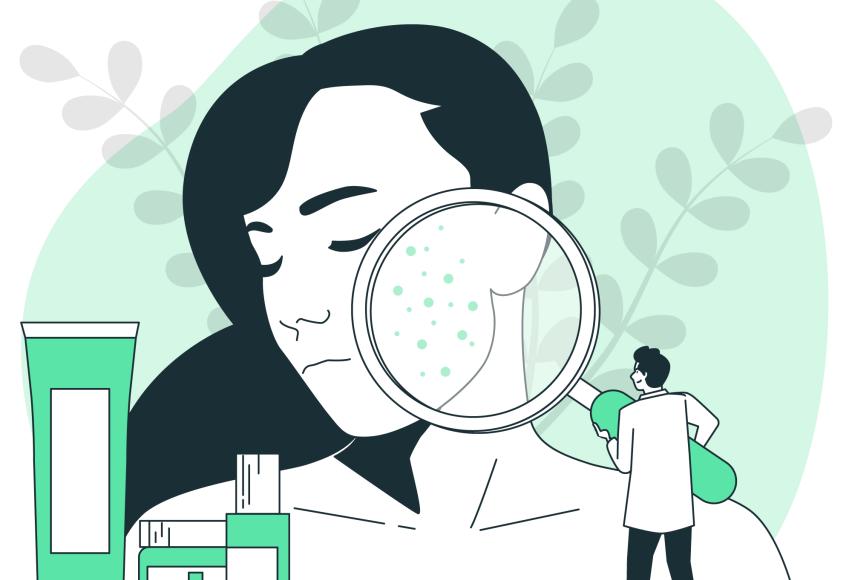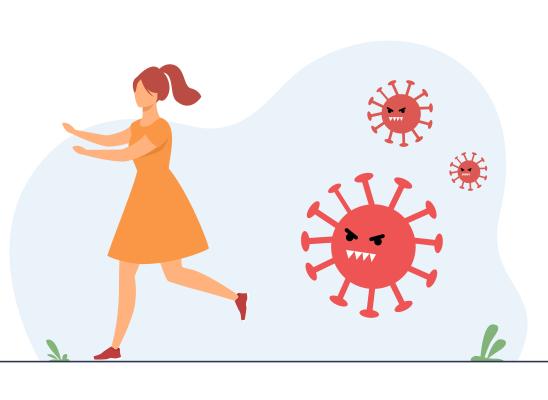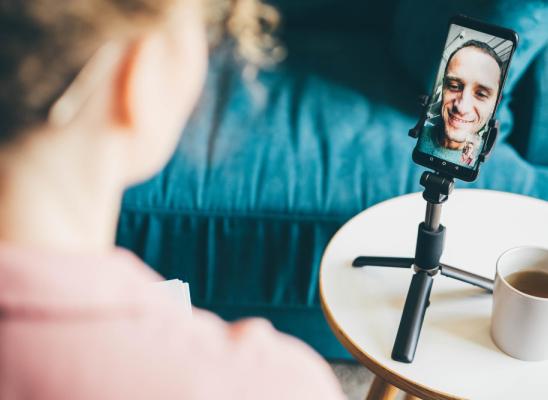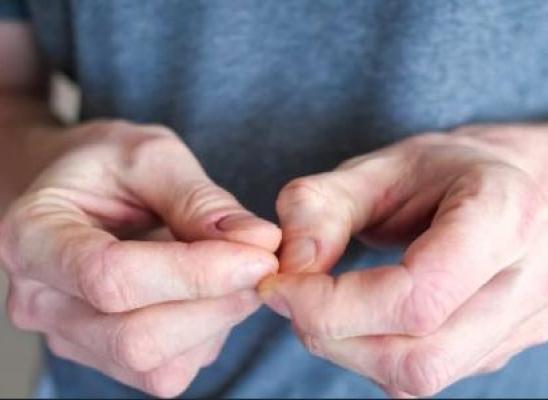Encountering Skin Picking: How Dermatologists Can Help?

Online test
Find out the severity of your symptoms with this free online test
When you have a problem with your skin, the first stop is often the dermatologist. After all, dermatologists are medical experts in disorders of the skin. Not surprisingly, dermatologists are often the first stop for someone dealing with skin picking. While people with skin picking disorder may develop issues with their skin requiring medical attention, this disorder is more than just skin lesions. And therein lies the dilemma.
Skin picking disorder, also known as Excoriation Disorder, is a body-focused repetitive behavior (BFRB) characterized by repetitive picking of the skin resulting in lesions and injury to the skin tissue. It is classified as an Obsessive Compulsive Related Disorder (OCRD) in the Diagnostic and Statistical Manual of Mental Disorders. It is not the same as OCD, but it does share similar qualities. It is also not uncommon for people with BFRBs like skin picking or hair pulling to also have other co-occurring mental health disorders including depression or anxiety.
The first-line treatment for skin picking is psychotherapy. However, it is not unusual for those dealing with BFRBs such as hair pulling (trichotillomania) or skin picking to initially seek out a dermatologist for their hair loss or skin damage. In fact, for some, dermatology is the only care they seek. Others may be resistant to psychiatric care.
This leaves dermatologists with a dilemma. They can treat the medical needs of the person’s skin (e.g., treat an injury or infection), but how do they address the underlying mental health needs when mental health is not their area of expertise? This intersection between dermatology and behavioral health highlights the complexity of treating psychocutaneous disorders and the important role dermatologists can play in the process.
Medical or Behavioral or Both?
Dermatologists encounter people with both skin and mental health conditions more than one might expect. It’s estimated that about 30-40% of dermatology patients also have mental health issues such as depression, anxiety, or poor body image. It’s not uncommon for people with BFRBs to seek out care from a dermatologist rather than a behavioral health clinician. Studies have found that people with a BFRB like skin picking have exceptionally high rates of co-occurring mental health conditions including depression or generalized anxiety disorder, panic disorder, post-traumatic stress disorder (PTSD), and ADHD. There is also an increased risk for suicide.
On the flip side, BFRBs are psychiatric disorders that can result in significant medical issues including skin damage, scarring, and even infections. For people with a hair pulling disorder, for example, they sometimes ingest hair (trichophagia) and develop a potentially life-threatening condition known as a trichobezoar. These are issues beyond the scope of behavioral health practice.
So, what appears to be a skin issue might hold deeper significance. Not surprisingly, dermatologists tend to view the skin picking through a dermatological lens while behavioral health clinicians view it through a psychiatric lens. This intersection of physical and psychological speaks to the need for disciplines to work in tandem and has given rise to a new approach known as psychodermatology. It’s bridging the gap and creating pathways for dermatologists to help their patients access all the care options they might need.
Armed with Information
Knowing what to look for or how to discuss care with patients isn’t always easy. Despite the increased awareness of mental health care, some stigma and feelings of shame linger, and they may be reluctant to share their experiences or even resistant to seeking psychiatric help. What’s a caring dermatologist to do?
A recent article highlights this challenge facing dermatologists, provides an overview of BFRBs, and offers suggestions for helping their patients find the best care options.
Education is Key – Understanding BFRBs can help dermatologists recognize and discern between a primary dermatological disorder with secondary mental health issues and a psychiatric disorder with dermatological presentations. An accurate diagnosis will guide the treatment plan.
Education also extends to the person being treated. It can be quite distressing dealing with something you don’t understand. Being able to explain things like the ABC’s of a BFRB, what to expect, and treatment options can help alleviate a lot of the distress and improve understanding of what’s happening.
Approach with Compassion and Curiosity – People are often reluctant to share symptoms that they might find embarrassing or uncomfortable to talk about. Asking questions in a supportive and non-judgmental way helps to increase feelings of safety and can aid in building a trusting rapport.
Offer Resources for Patient Education
Share comprehensive resources such as bfrb.org and encourage the person to educate themselves about their condition. Provide educational literature. Becoming more knowledgeable about their condition is empowering and may take some of the fear out of seeking specialized care.
Dermatologists can also create connections with behavioral health professionals in their area who may be able to provide consultation or care for their patient’s behavioral health needs.
Encourage Self-Monitoring
For those ready to manage their condition, encourage self-monitoring. Recognizing and understanding their experience with their BFRB can be empowering and help to mitigate feelings of shame. BFRB-focused self-help workbooks or online treatment programs may be recommended. This action might be particularly helpful when someone is waiting to establish care with specialized care for their BFRB or if the person declines specialized care. While not a substitute for expert care, self-help can be quite helpful as part of an overall treatment plan for some people living with skin picking.
The next time you see your dermatologist, don’t be surprised if they ask questions about your experience with your skin issue and how it might be affecting you not just physically but emotionally too. That information can help you and your doctor determine the best care options for you.
References
1. Madan, S. K., Davidson, J., & Gong, H. (2023). Addressing body-focused repetitive behaviors in dermatology practice. Clinics in Dermatology. https://www.sciencedirect.com/science/article/pii/S0738081X23000317#bib0025
2. Yadav, Savita & Narang, Tarun & Kumaran, Muthu Sendhil. (2013). Psychodermatology: A comprehensive review. Indian journal of dermatology, venereology and leprology. 79. 176-92. https://ijdvl.com/psychodermatology-a-comprehensive-review/
3. Grant, J. E., & Chamberlain, S. R. (2020). Prevalence of skin picking (excoriation) disorder. Journal of Psychiatric Research, 130, 57-60. https://www.sciencedirect.com/science/article/pii/S0022395620308773
4. Albert, U., Pellegrini, L., Maina, G., Atti, A. R., DeRonchi, D., & Rhimer, Z. (2019). Suicide in obsessive-compulsive related disorders: prevalence rates and psychopathological risk factors. Journal of Psychopathology, 25, 139-148. https://old.jpsychopathol.it/wp-content/uploads/2019/09/RivSOPSI_3_2019.pdf#page=18
5. Grant, J. E., & Odlaug, B. L. (2008). Clinical characteristics of trichotillomania with trichophagia. Comprehensive psychiatry, 49(6), 579–584. https://www.ncbi.nlm.nih.gov/pmc/articles/PMC2605948/
6. (2023, May 20). TLC Foundation for Body-Focused Repetitive Behaviors. https://www.bfrb.org/
7. Moritz, S., Penney, D., Ahmed, K., & Schmotz, S. (2022). A Head-to-Head Comparison of Three Self-Help Techniques to Reduce Body-Focused Repetitive Behaviors. Behavior Modification, 46(4), 894–912. https://journals.sagepub.com/doi/full/10.1177/01454455211010707?rfr_dat=cr_pub++0pubmed&url_ver=Z39.88-2003&rfr_id=ori%3Arid%3Acrossref.org
Online test
Find out the severity of your symptoms with this free online test
Start your journey with SkinPick
Take control of your life and find freedom from skin picking through professional therapy and evidence-based behavioral techniques.
Start Now



